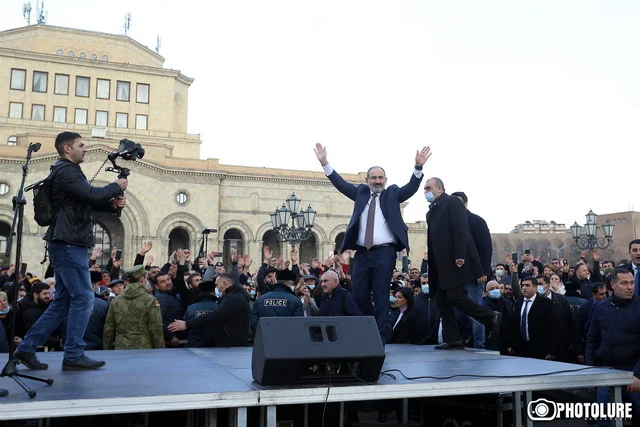Imagine this situation: I explain the structure of the symphony orchestra to a Ministry of Education, Science, Culture, and Sport official (who, say, received their education at the Polytechnic University). I have studied this issue from different angles while studying at the conservatory. The official can respond in two ways. First, they can listen to me carefully and take notes, and they can consider my advice when making decisions on this issue. In this case, they can be called a state-minded official. Or, they can stomp and shout, “Get out of my sight! I know everything better than you and I have decided to reduce the number of violins by 90 percent.” In that case, they can be called a very specific phrase in Russian: petty tyrant.
A state official, including the head of state, cannot know everything, but they must be open-minded enough to lead not in accordance with their own pleasure, but in accordance with the opinions of experts. Nikol Pashinyan only is aware of foreign policy, diplomacy, economy, law, security, and military from the perspective of a journalist, and he is about to write interesting, wealthy articles full of comparisons and tough questions on those topics. However, when the fate of an entire state (especially a small, vulnerable, and unstable state like ours) is in your hands, that knowledge is not sufficient, and leading in accordance with your own ambitions and imagination, as we have seen, is destructive.
But the tragedy is that even after this destruction takes place, Pashinyan is so obsessed with himself and his position that he can’t understand what happened, and he only talks about “putting an end to the ‘velvet’ attitude.” It’s as if it is possible to resolve that crisis through violence and pressure.
It is not a coincidence that soldiers finally joined the fight against militant ignorance and incompetence. First, the biggest failure of this government was its military defeat, and one of the main reasons for that is the Prime Minister’s ‘Napoleon-like’ tendencies. He thought of himself as a warrior, and during the war, to the dismay of military experts giving him advice, he made one decision after another that caused chaos in many cases.
Read also
Army officials were also insulted by the theory spread by the government that Pashinyan is not to blame for anything, and the main reason for the defeat was treason by soldiers. That is sometimes said directly, and it is implied other times. But in all cases, from a moral point of view, the controversial attitude is visible to army officers, to put it mildly. The head of state, even someone with the slowest thought process, will not try to humiliate people in uniform even in an attempt to justify themselves. Especially since the previous war was not the last one.
I don’t know how this crisis will be resolved. I am writing this article on Thursday evening. I hope that nothing will happen tonight. No regime change or “regime maintenance” is worth even one human life.
Aram Abrahamyan




















































